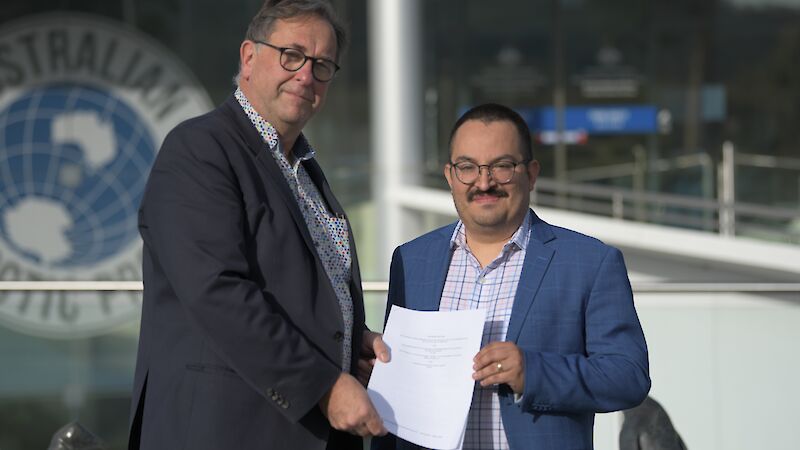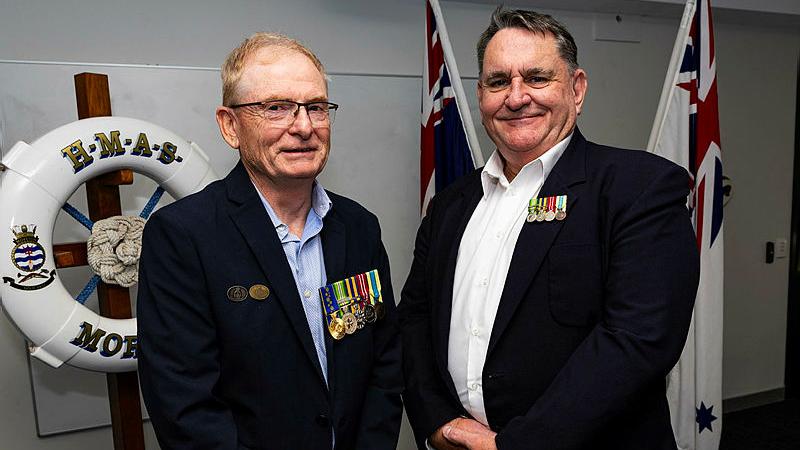New medical technologies, currently being trialled by Australian Antarctic expeditioners, will help inform international space research through a new collaborative agreement, announced today.
The agreement between the Australian Antarctic Division (AAD) and the US-based Translational Research Institute for Space Health (TRISH)* at Baylor College of Medicine’s Center for Space Medicine, will see TRISH-sponsored research performed in Antarctica, to better understand and manage astronaut health on future space missions.
AAD Chief Medical Officer, Dr Jeff Ayton, said there are similarities in the conditions and challenges faced in supporting the health and well-being of Antarctic expeditioners and astronauts.
“Antarctic expeditioners and astronauts are examples of isolated, confined populations in extreme environments, doing hazardous work, dependant on technology for survival, and with limited scope for evacuation,” Dr Ayton said.
“This makes Australia’s Antarctic Program an excellent analogue for understanding the risks to humans in space and for testing and developing technologies and methodologies to reduce these risks.”

Through the collaboration, TRISH will fund approved research projects directed at expeditioner and astronaut health and wellbeing. This includes the provision of advanced medical interventions and technologies applicable to isolated crews in long-duration space travel and populations in other remote and extreme environments.
“The collaboration includes behavioural, physiological, epidemiological and immunological research, and telemedicine and technology demonstrations,” Dr Ayton said.
“The work will inform how to monitor, diagnose and optimise astronaut health as they experience the extended stress of isolation and confinement during space missions.”
A number of innovative devices are already being trialled at Australia’s Antarctic stations. These include a wearable biosensor that allows remote monitoring of physiological markers such as temperature, heart rate and respiration rate.
“Since 2021 we’ve been using these biosensors to assess for early signs of COVID-19 infection in expeditioners deploying to Antarctica,” Dr Ayton said.
“Our work demonstrated the effectiveness of this technology in a remote and extreme environment, and as a result, the biosensors will be used on the Polaris Dawn space mission in the coming months.”
Antarctic doctors are also trialling new ultrasound technology and protocols that will allow people with no prior medical experience to generate clinically useful images for diagnosis back at headquarters, or ‘mission control’.
TRISH Executive Director, Dr Dorit Donoviel, said the findings from the collaboration will lead to new health and performance diagnostics, as well as countermeasures that may lead to meaningful health advances for NASA’s future trips to the Moon and Mars, and on upcoming commercial space flights.
“Our international collaboration with the Australian Antarctic Division will extract insights to benefit all future astronauts, as well as other explorers of extreme environments,” Dr Donoviel said.
Importantly, the collaboration will also benefit Earth-based health care.
“This collaboration will inform healthcare technologies and practices used in other remote environments, including remote and regional Australia,” Dr Ayton said.
“There are significant potential benefits for monitoring metabolic health, for example, in isolated communities that experience a higher proportion of health risk factors compared to metropolitan communities, as well as reduced access to medical care.”
The collaboration will run until 30 September 2028
*The Translational Research Institute for Space Health (TRISH) is a United States-based institute led by Baylor College of Medicine’s Center for Space Medicine, in partnership with the California Institute of Technology and Massachusetts Institute of Technology. TRISH is empowered by NASA’s Human Research Program and is funded through a cooperative agreement.






